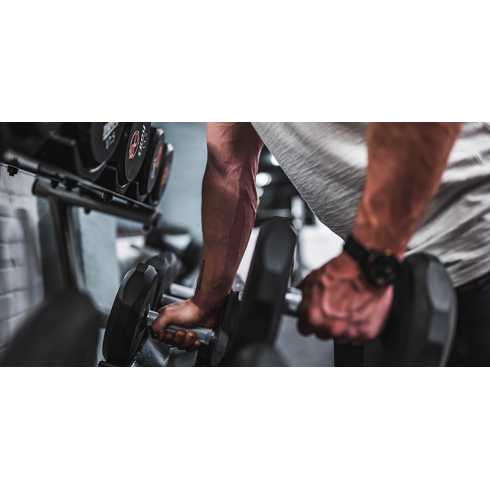Working out during Navratri fasting is not easy. Limiting your diet is a major challenge for athletes wishing to continue their activities. The body is weakened and it would be unrealistic to expect to achieve similar performance during the month of fasting. However, it is possible to continue to be active without taking too great of a risk. Here are the 9 tips that we offer you to facilitate the practice of workout for 9 days of fasting.

1. SAVE YOUR EFFORT
If you are already used to the physical effort, you can afford to continue but lower your standards slightly. Decrease the frequency of your workouts in order to give your body more time to recover, the intensity of your workouts should also be reduced.
If you are not a practitioner but want to find a way to distract yourself during the fasting period, favour sports that are very calm and not physically demanding, such as walking or a stretching session.
2. HYDRATE AS MUCH AS POSSIBLE
Hydration will be an essential aspect of your recovery. Try not to drink a large amount of water at once until you are full rather prefer drinking small amounts at regular intervals. Thus, your body will better assimilate the water you provide it.
Also consider incorporating foods rich in water such as cucumbers, salad or tomatoes.
3. FOCUS ON CARBOHYDRATES
During the period when you can eat, choose carbohydrates such as sweet potatoes and sabudana. Carbohydrates have a tendency to retain into your body for a longer period of time. This will make your day easier, allowing you not to go hungry until very late in the day. You will also provide your body with a large dose of energy, allowing you to exercise effectively.
4. PROTEIN IS YOUR ALLY DURING FASTING
Protein powder is an ALLY to our muscles, it allows a good distribution of proteins to the body during the fasting period. Thus, your feeling of fullness will be greatly prolonged and you will allow your body to receive good doses of protein throughout the day. QNT's Prime Whey Protein will therefore greatly facilitate your task while providing you with a very large dose of protein, necessary for good recovery and will also serve to balance your diet.
5. WARM UP
Normally, warming up is already an essential and highly neglected part of training. In times of fasting, it is all the more important to give it time. Your body already has very few resources to train, so a careful muscular awakening can only do it well. Start with a series of dynamic stretches but don't force yourself, don't forget to warm up your joints.
6. CHOOSE THE NICHE THAT SUITS YOU BEST
With the fasting period from sunrise to sunset, there is little room left for training. The two preferred time slots will be either very early in the morning, before the beginning of the fasting period, or in the evening, just after the breaking of the latter.
In the first case, you will have the advantage of being able to train after having already been able to eat a few hours before, guaranteeing you more energy during the effort. You can then immediately follow up with a hearty breakfast before starting your day. However, there are risks that you will be tired during the day or that you will feel thirsty or hungry more quickly.
In the second case, you will need to be a little more patient. The principle would be to start by breaking your fast with a little snack and water. Then follow through with training. Finally, once it is finished, have a slightly larger but fairly light dinner, while hydrating yourself properly. Later that night, you can afford a much fuller, heavier meal.
The choice of time slot will be based on your schedules and availability. If you have the option to do both, try testing times to find out which times are best for you and best for your body.
7. DON'T TAKE TOO MANY RISKS
In periods of fasting, the regular workout becomes slightly more tiring. If you are running, don't stray too far. If you are training with heavy loads, try to have someone to assist you. The ideal would be to always have someone by your side to be able to help you to assure safety.
8. LISTEN TO YOUR BODY
Despite all of these recommendations, your body may still not be able to keep up and it will let you know. If you start to feel discomfort or pain, feel dizzy during training, stop all activity and wait until you can hydrate yourself properly. In such conditions, there is no room for pride! Listening to your body will allow you to avoid serious injuries which, if not avoided, will put you out of practice for an even longer period of time than the fasting period.
9. OUR RECOMMENDATIONS
Since recovery is an essential part of any workout, especially in such a physically demanding period, certain supplements can help optimize it so that you are in better overall shape:
The Prime Whey protein, as said earlier, will keep you satiated for a longer period after your last meal.
The BCAAs will greatly improve your recovery by promoting protein synthesis. Other vitamins and supplements such as Daily Vitamins which already ensure in normal times a marked improvement in your overall health and your immune system can only be a plus in this period when your body is severely strained. the ordeal.
CONCLUSION
With good precautions and by following these tips, you will be able to maintain regular physical activity even during fasting. Once again, remember to listen to your body carefully and pay attention to any signs it is sending you. Have confidence in yourself and you should be fine.
The QNT team wishes you a very Happy Navratri.






